If you’re curious about when is spider season in the UK and want to know how to keep the crawlies from invading your home, you are reading the right article. Here we will provide answers for those who are puzzled as to why they suddenly see so many spiders.
So when is spider season in the UK, and what are the best ways to protect your household from being infested with creepy crawlies? Let’s find out.
Table of Contents
When is spider season in the UK?
Spider season in the UK begins in September and ends in October. During that time, the spiders are most active. Male spiders are often seen searching for a mate at this time, so it may feel like you are seeing more spiders than usual.
After the summer months, spiders in the UK become more prevalent in homes as the weather cools. As a result, spiders will remain inside homes, sheds and garages in the coming months seeking drier, warmer conditions.
How long do spiders usually live?
It depends primarily on a spider’s species how long it lives. Spiders typically live between 1 and 2 years, but some species live for decades.
The average lifespan of female tarantulas is 30 years, while the lifespan of male tarantulas is usually 5 to 7 years. In contrast, wolf spiders usually live for 1 to 3 years, unlike adult garden orb weaver spear which lives for about 12 months.
Multiple factors affect the lifespan of spiders, including environmental conditions, food availability, and predators.
When are spiders most likely to come into houses?
Spiders are usually present all year round in UK homes. However, the chances of one roaming around your property significantly increase in the fall, when spiders begin to breed. Most spiders will emerge in search of partners to lay eggs before the winter starts for hatchlings the following spring.
Spiders seek the best living and breeding conditions as the egg-laying season approaches. A female spider’s pheromone, which is a kind of perfume, can be detected by males. Wandering males search for mature females, in essence. A female spider usually stays in one place for her entire life, but a male spider is always on the move.
Most spiders moving around in the fall already live in walls and voids. We may see them more frequently in the fall once they emerge to mate, but then they will disappear again.
Learn: What attracts spiders to your house
How to keep spiders away during spider season
If you are looking for ways to repel spiders naturally, you can use a few tricks without harming them, as spiders are important for biodiversity.
There are numerous things you can do to prevent spiders from coming into your home:
- Spider-repellent plants – spiders taste with their legs and do not like certain tastes and scents. Mint, basil, and onions are the most common options for deterring spiders.
- Natural spider repellents are available in various forms, including essential oils such as peppermint, citrus, or tea tree oils. Add 10-15 drops of the essential oil to a spray bottle with one cup of water and shake well. Spray the solution around your home’s doors, windows, and other entry points to keep spiders away. Reapply the solution in a few days.
- Spider-repellent scent – lavender and cinnamon are natural products that repel spiders, so pick up a few scented candles or plants for the coming months to keep them away.
- DIY spider-repellent spray – make your repellent with dishwashing detergent and black pepper instead of buying chemically smelling, expensive repellents from the store. To make natural spider repellent, get a spray bottle, combine water and dishwashing detergent, then add pepper and shake. Spray any entry points and areas where spiders can enter.
- Block entry points – there are a couple of simple spider prevention techniques that you can do, including eliminating any access points at your home. Cracks or crevices around entry doors, windows, and our foundation are all in this category. No matter what access points you identify, you’ll need to seal or fill them.
- Declutter – spiders may also be attracted to your home if it has a lot of hiding places, such as cluttered areas or piles of clothes. Additionally, spiders may be drawn to your home if you have a lot of insects, as spiders feed on insects.
Treatment for Arachnophobia and Ways to Beat Spider Fear
How often do spiders bite and should you worry about it?
A spider will not bite a human unless it feels threatened or cornered. Generally, spiders do not attack humans and will bite only out of self-defence.
The frequency of spider bites varies based on their species and environment. Despite this, most spiders are not venomous, and their bites are generally harmless. Bites from even venomous spiders, like a black widow spider, are relatively rare.
Check also: Spider Bite or a Bed Bug Bite? Here’s How to Tell the Differences
However, these spiders have venom that can cause muscle cramps and spasms. You should seek medical attention immediately if you experience any unusual symptoms, such as severe pain, swelling, or difficulty breathing, after being bitten by a spider.
When does spider season end?
Spider season usually peaks in October, when many spider species reach maturity. As temperatures drop, spiders retreat to their winter hiding spots. Therefore, spider season in the UK typically winds down by November.
But what happens to spiders in the winter? Spiders have evolved different winter survival strategies depending on the species and environment. For example, some spider species hibernate as adults, usually in protected locations like under leaves, buildings, or tree bark.
Other spiders seek out warm environments, such as homes or other structures, to find shelter and food. In addition, many spider species have evolved the ability to produce antifreeze compounds that protect their tissues from damage caused by freezing temperatures.
Read more: Do conkers keep spiders away?
Takeaways
- Spiders are a natural and important part of the ecosystem, and they play a crucial role in controlling insect populations;
- From early September until mid-October, spiders are most active;
- Male spiders are always on the move, while females stay in one place all their lives;
- Essential oils such as peppermint, citrus, and tea tree oil are natural spider repellents;
- Spider season in the UK typically ends in November as temperatures drop;
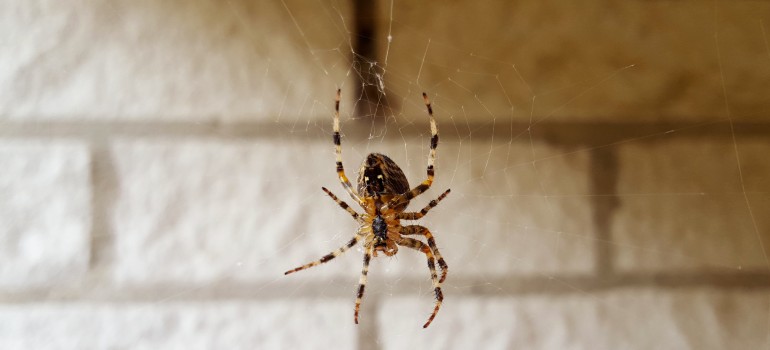

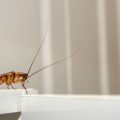


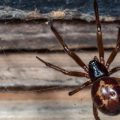
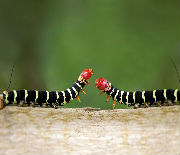
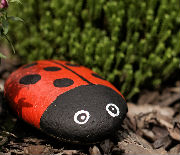
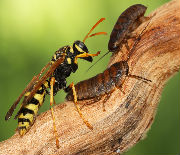
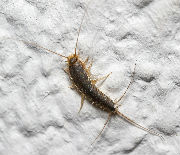
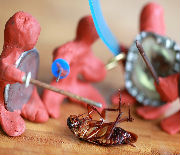
So it’s April and so far my neighbour has removed 2huge spiders from my home? I thought they did not come in till autumn, I have the biggest fear of spiders… I’m literally sat here shaking.